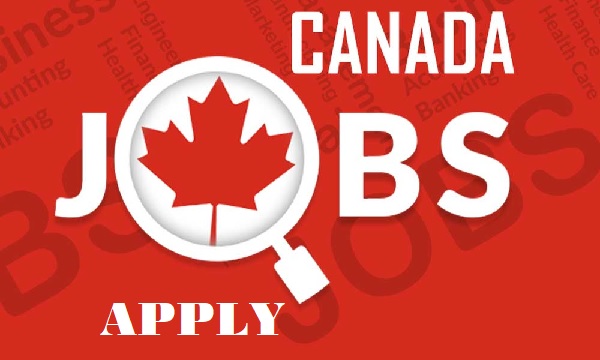Germany has become an attractive destination for many immigrants seeking job opportunities. This country offers a strong economy, a high standard of living, and a variety of in-demand professions. If you have the right qualifications, there are numerous pathways available for you to build a successful career in Germany.
The German job market values skilled workers, making it important for you to understand the options available. The new Skilled Immigration Act eases the process for non-EU foreigners seeking employment in Germany. Many sectors, such as healthcare and engineering, are in need of professionals, which opens up opportunities for you to find a rewarding job.
Navigating the job market may seem overwhelming, but resources are available to help you. Websites like Make it in Germany and Germany Jobs Now simplify the search for jobs suited for immigrants. With the right information and preparation, you can successfully find and secure a job in this dynamic country.
Overview of Germany’s Job Market for Immigrants
Germany’s job market offers numerous opportunities for immigrants due to its strong economy and demand for skilled workers. Understanding the specific sectors in need, the skills required, and the work culture can help you navigate your career path effectively.
Economic Sectors in High Demand
Germany’s economy is diverse, but certain sectors show a significant need for skilled labor. Key industries include:
- Information Technology (IT): Experts in software development, cybersecurity, and data analysis are highly sought after.
- Engineering: Mechanical and electrical engineers are essential, especially in automotive and manufacturing sectors.
- Healthcare: Nurses, doctors, and healthcare specialists are in short supply. The aging population creates increased demand.
- Skilled Trades: There is a notable need for electricians, plumbers, and construction workers.
These industries provide various roles that cater to individuals with different skill sets. You can explore opportunities through job boards like Bundesagentur für Arbeit or platforms such as StepStone and Indeed.
Skills and Language Requirements
To thrive in Germany’s job market, you need specific skills and, often, knowledge of the German language.
- Skills: Technical and professional qualifications are crucial. Credentials from your home country may need validation in Germany.
- Language: While some companies operate in English, knowing German will enhance your job prospects. Many positions, especially in healthcare and customer service, require fluency.
Consider enrolling in language courses to improve your German. Programs like integration courses for immigrants can be beneficial. Being proficient in German not only boosts your employability but also helps you integrate into society.
Work Culture and Environment
German work culture emphasizes efficiency, punctuality, and respect for hierarchy. Here are some aspects to note:
- Work-Life Balance: Germans value a healthy work-life balance. Standard workweeks are about 35-40 hours, with ample vacation time.
- Team Collaboration: Working in teams is common, where every member’s input is valued. Open communication is encouraged in most workplaces.
- Professional Development: Many companies support ongoing training and development. Look for employers that offer these benefits.
Familiarizing yourself with these cultural norms can ease your transition into the workplace. Adapting to the local work environment is essential for success in your career journey.
Legislation and Work Permits
Germany offers various legislative frameworks to help immigrants secure jobs in the country. Understanding the types of work visas, the EU Blue Card, and the legal pathways available for non-EU professionals is essential for navigating the employment landscape.
Types of Work Visas
Germany provides a range of work visas tailored to different professions and situations. The most common types include:
- Employment Visa: For individuals who have a job offer from a German employer.
- Job Seeker Visa: Allows you to stay in Germany for up to six months to look for work and does not require a job offer beforehand.
- Skilled Worker Visa: Designed for professionals with recognized qualifications and skills in demand in Germany.
Each visa has specific requirements, like proof of qualifications, language skills, and financial stability. Check the details before applying, as the exact procedure may vary based on your home country.
The EU Blue Card and Its Benefits
The EU Blue Card is a special work permit for highly skilled non-EU immigrants. To qualify, you must have a job offer that meets certain salary thresholds and possess a relevant degree or professional qualification.
Some benefits of the EU Blue Card include:
- Fast-track residency: After 33 months (or 21 months with sufficient German language skills), you can apply for permanent residency.
- Mobility within the EU: The card allows you to work in other EU countries under specific rules.
- Family reunification: Your family members can join you in Germany without needing a separate visa.
This card simplifies the process for skilled workers and makes it easier to integrate into the German labor market.
Legal Pathways for Non-EU Professionals
For non-EU professionals, Germany has established simplified pathways to employment. The Skilled Immigration Act facilitates the entry of skilled workers. This includes the recognition of foreign qualifications before applying for a visa.
You can also pursue:
- Internships and Traineeships: Often a route to full-time employment, these options allow you to gain experience in your field.
- Apprenticeships: These programs combine on-the-job training with classroom learning, greatly enhancing your employability.
Make sure to research your options and gather necessary documentation to improve your chances of success in navigating the German job market.
Job Search Strategies for Immigrants
Finding a job in Germany requires a solid approach. Leveraging personal connections and using online resources can greatly enhance your chances of success. Here are strategies to consider.
Networking and Community Support
Developing a strong network is essential for job seekers. Attend local events, workshops, and cultural gatherings to meet others in your field. Engaging with local communities can provide insights into the job market and available opportunities.
Join professional associations related to your career. These groups often host networking events that can connect you with potential employers. Use platforms like LinkedIn to reach out to professionals in your industry. Do not hesitate to ask for informational interviews or advice.
Volunteering can also be a great way to expand your network while gaining valuable experience. Make contacts in your field and demonstrate your skills through real-world applications. Building relationships can lead to job referrals, increasing your visibility in the market.
Online Job Portals and Placement Services
Utilizing online job portals is crucial in your job search. Websites like Indeed, Monster, and StepStone list numerous opportunities across various sectors. Tailor your resume and cover letter for each application to improve your chances.
In addition to job boards, consider using placement services. Organizations such as the Federal Employment Agency offer support for immigrants. They provide job placement assistance and can guide you through the hiring process.
Remote job platforms like Zuhausejobs cater to international job seekers looking for flexible work arrangements. Use these sites to explore remote positions that match your skills. Staying proactive and applying regularly will keep you informed about new opportunities.
Relocation and Settlement
Moving to Germany involves several important steps. It’s crucial to address both housing needs and cultural integration to ensure a smooth transition.
Housing and Living Expenses
Finding a place to live is one of your first tasks. Popular cities like Berlin, Munich, and Frankfurt offer various housing options, from apartments to shared flats. Consider your budget and the location’s proximity to your workplace.
Average monthly rent in major cities can range from €700 to €1,500 depending on size and area. Utilities and internet can add an additional €200 to €300 monthly. Remember to factor in these costs when reviewing your budget.
You might also want to explore temporary housing solutions, like Airbnb or hostels, to give yourself time to find a permanent place. Researching local neighborhoods will help you discover the best areas for your lifestyle and needs.
Cultural Integration and Support Systems
Cultural integration is vital for a successful move. Joining local groups or expat networks can ease the adjustment. Many cities have organizations that offer language classes or cultural events.
Consider using resources like Meetup or Facebook groups to connect with others. These platforms can help you find communities that share your interests and background.
Government programs may also support immigrants. They offer workshops on navigating daily life in Germany, from understanding the healthcare system to learning about public transportation. Engaging in these programs will enhance your experience and help you feel more settled.


